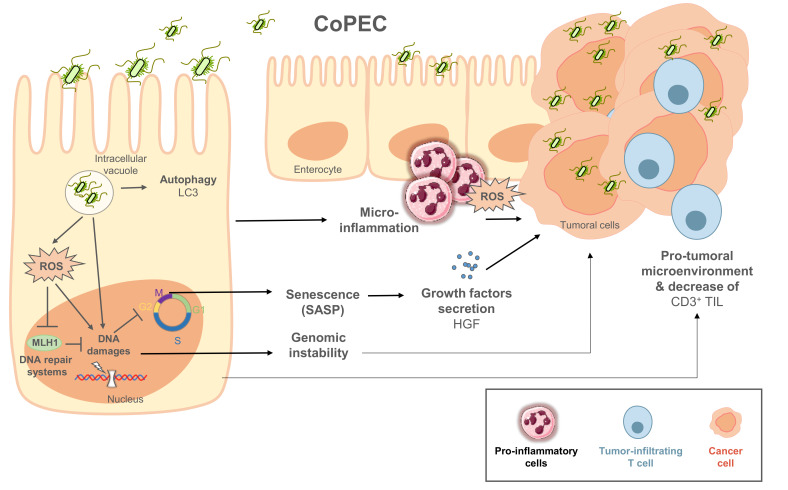Figure 2.
Pro-carcinogenic activity of CoPEC in colonic mucosa. Escape of CoPEC from autophagy in infected epithelial cells could lead colibactin to alkylate DNA, and further to cause DNA damage and then cell cycle arrest. In addition, CoPEC induces cellular oxidative stress, leading to inhibition of the DNA repair protein MLH1. All of these mechanisms participate in genomic instability in infected epithelial cells. In addition, CoPEC induced senescence of infected epithelial cells, accompanied by secretion of inflammatory mediators and growth, promoting the proliferation of adjacent uninfected cells. They could also affect the tumor immune microenvironment, even at distances from the tumor site through the reduction of tumor-infiltrating CD3+ T-cells.

